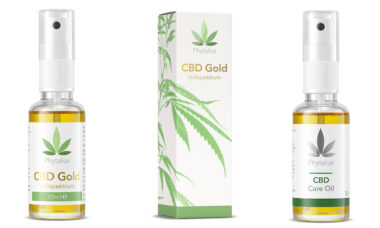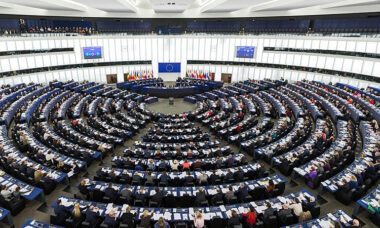A recently published report from the European Monitoring Centre for Drugs and Drug Addiction (EMCDDA) highlights the diverse retail make-up and unclear regulatory outlook of the European CBD sector
For many 2020 will always carry an asterisk. The CBD industry was – overall – more fortunate than many other sectors
Multiple jurisdictions are planning significant legislation on both CBD and hemp-related matters, but it seems regulation in 2021 could be defined as much by what doesn’t happen as by the progress made
Officials from the European Commission (EC) met with CBD-Intel to discuss the status of novel food applications in light of the ruling in the Kanavape case
While a post-Brexit regulatory review in the UK is likely to focus much more on nicotine vaping than on CBD, equally there are likely to be knock-on effects for providers of CBD products – whether or not intended
The implications of the Kanavape ruling could be far-reaching. This report examines the decision by the Court of Justice of the European Union (CJEU) and some of its likely consequences
The decision by the Court of Justice of the European Union (CJEU) in the Kanavape cape that CBD cannot be treated as a narcotic has been welcomed in France – though not by the official regulatory bodies
Starting next year, Switzerland will allow the commercial growing of all hemp varieties with a THC content below 1% – even those that are not in the European Union catalogue
CBD must not be regarded a narcotic drug, even under UN Convention definitions, whether or not it is extracted from hemp flowers, the Court of Justice of the European Union (CJEU) has ruled
Companies do not feel much risk of a glut of CBD-containing food, drink and dietary supplement products or cannabinoid ingredients coming into the UK market if the EU classifies CBD as a narcotic
The UK Home Office has stated it has no plans to ease restrictions on using flowers for extraction before the EU exit transition period ends on 1st January 2021
EU member states will have to decide how to implement a planned European levy on non-recycled plastic packaging waste – to fund it from national budgets or make industry pay for the waste it produces
A decision by the German city of Düsseldorf to prohibit the sale of all foods containing CBD, including in natural extract form, faces a legal challenge from local hemp wholesaler Hempro International
MEPs with very different political outlooks have attacked the European Commission’s initial opinion that CBD could be classed under United Nations conventions as a narcotic
Do not expect European novel food authorisations before the end of 2022 at the very earliest and do not expect generic authorisations to cover non-applicant products, a new report from CBD-Intel warns
A German company is still waiting to hear from the authorities two months after launching new CBD products that could be considered food supplements
Confusion over whether CBD should be considered a narcotic drug has developed into a major question mark over the substance’s future in Europe
An influential Polish think tank has released a report calling for a relaxation of Poland’s cannabis regulations
A new consortium project from the EIHA will put four separate novel food applications in to European and UK authorities after performing the necessary toxicological and safety studies
Progress on novel food authorisations for non-synthetic cannabinoids will be paused until European regulators decide whether extracts from hemp flowers constitute a drug under narcotics laws, CBD-Intel has learned
Major French flavours and fragrance manufacturer Robertet is making its first foray into European cultivation and processing of hemp oil extracts in a joint venture with Swiss CBD and hemp producer Alponics
This short regulatory report provides an overview of the current GMP regulations for cosmetics being place on the market in the EU
The aim of this report is to bring some clarity to the process of placing a food product on the EU market, looking at the options of Article 4 and Article 10
CBD-Intel examines possible exemptions for some small packages in EU regulations concerning classification, labelling and packaging (CLP)
This report continues to look at the European Union’s CLP regulations and covers hazardous chemicals and obligations to notify, the part played by Poison Centres and the need for UFIs
The EU’s Classification, Labelling and Packaging (CLP) Regulations classify all chemical substances and mixtures according to their toxicity levels. Part 1 of our report looks in detail at this legislation
Epidyolex, the CBD-based medicine used to treat rare forms of epilepsy, has been approved by the European Medicines Agency (EMA)
CBD for vaping is not as cut-and-dried as you might hope, despite vaping products having a clear regulatory regime in Europe. CBD-Intel looks at the different rules for CBD and vaping across the EU.
CBD’s entry in the European Commission’s database of cosmetics ingredients has been expanded to differentiate it from generic cannabis and by-products. The move offers more, but not total, clarity
The European Parliament’s agriculture committee has approved proposals to put forward an amendment to the Common Agriculture Policy allowing hemp farmers to grow varieties with as much as 0.3% THC
Under current EU rules, cannabinoid-containing hemp extracts could require pre-market authorisation as they are now considered to be novel foods. CBD-Intel explains how the rules work
According to EU authorities, CBD and other cannabis extracts could be deemed illegal as an ingredient in cosmetics. However, individual member states have not made the same interpretation of the rules
The European Parliament has passed a resolution supporting medical cannabis – though only in cases where a product has gone through clinical trials and a regulatory approval process
No food item should contain any cannabinoid, including CBD, in the EU without prior novel food ingredient authorisation following a change by European authorities – though this is open to interpretation
The CBD industry is currently navigating a complex and changing regulatory landscape across the European Union. CBD-Intel brings some light to the obscure area of novel food regulation – and asks the vital questions






































